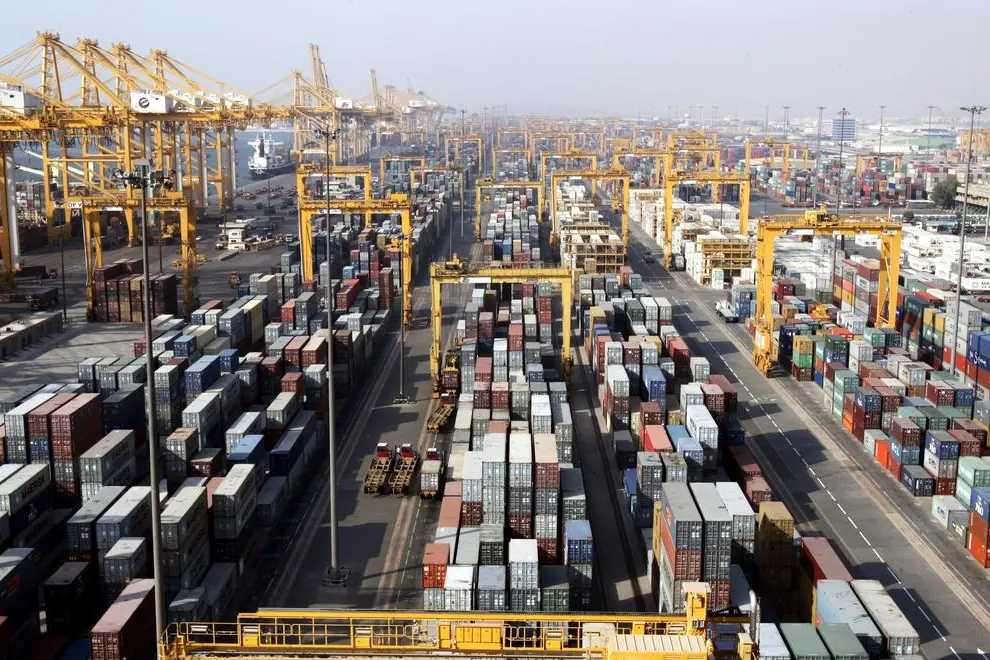PHOTO
The import of both counterfeit and parallel goods into regional markets can present real threats to users, as well as providing funds to nefarious organisations, the regional head of brand protection and healthcare and consumer giant Johnson & Johnson has said.
Parallel imports are goods produced legitimately by a manufacturer for one market that are then diverted to another via unofficial channels – either because they are sold more cheaply in third-party markets, or to avoid local import taxes.
Wael Adhami, head of brand protection for Johnson & Johnson's Middle East, Africa and Pakistan region, told The Economist's Global Illicit Trade Summit in Abu Dhabi on Tuesday that "parallel imports in the healthcare industry could be just as dangerous as counterfeits".
"Any healthcare manufacturer will tell you that their products are produced under the strictest of conditions. Medical devices and pharmaceutical products… if they're not being handled in a specific way then the manufacturer can no longer guarantee that they are efficient, that they serve a purpose and that they are actually safe," he said.
Issam Badawailan, brand protection director of consumer products giant Unilever, said that its issues with parallel imports were not as severe, as its products are generally produced to the same global standards, but even so they are not suitable for local markets as they do not meet local labelling standards.
"There are some general claims and technical claims in GCC [Gulf Cooperation Council] that are not accepted," he explained.
Jon Parker, a Dubai-based intellectual property (IP) partner with law firm Gowling WLG, said that parallel goods cause problems for local business units of multinationals, as they can damage local sales, and some products, such as confectionery, are produced to different standards to account for local market conditions.
Despite this, he said "it is extremely difficult to stop parallel imports under the IP laws here". A GCC trademark law has been adopted by three of the council's six members that theoretically imposes higher penalties, but Parker said there is little evidence of these yet being handed down.
"Effectively, those products can come in and as long as they meet the labelling standards etc, they can go to the market and it's very difficult (to stop them)."
Adhami said another major issue arises with product recalls, as companies generally only have control over the products that they have distributed through the local supply chain and may not know where faulty parallel imports are sold.
"Illicit trade should not be looked at as a victimless crime, because it really isn't,” he said. “There's a growing body of evidence today that shows there are some really dangerous and nefarious organised crime syndicates behind illicit trade. So by letting this illicit commercial activity go on, we are helping some really bad guys out there do some nefarious stuff in some of the other countries, some of them surrounding us here in the region," Ahmadi added.
"I think this region should be particularly sensitive to these topics."
Further reading:
- GCC needs to harmonise excise policies to prevent illicit trade, tobacco company exec says
- VAT introduction helping UAE to combat illicit trade, says Dubai gov't advisor
- Better scrutiny of free zones needed to stamp out counterfeiting
- New anti-money laundering law integral to UAE counterterrorism strategy
- Nearly 5,000 social media accounts in UAE closed for selling fake brands
(Reporting by Michael Fahy; Editing by Shane McGinley)
(michael.fahy@refinitiv.com)
Our Standards: The Thomson Reuters Trust Principles
Disclaimer: This article is provided for informational purposes only. The content does not provide tax, legal or investment advice or opinion regarding the suitability, value or profitability of any particular security, portfolio or investment strategy. Read our full disclaimer policy here.
© ZAWYA 2018





















